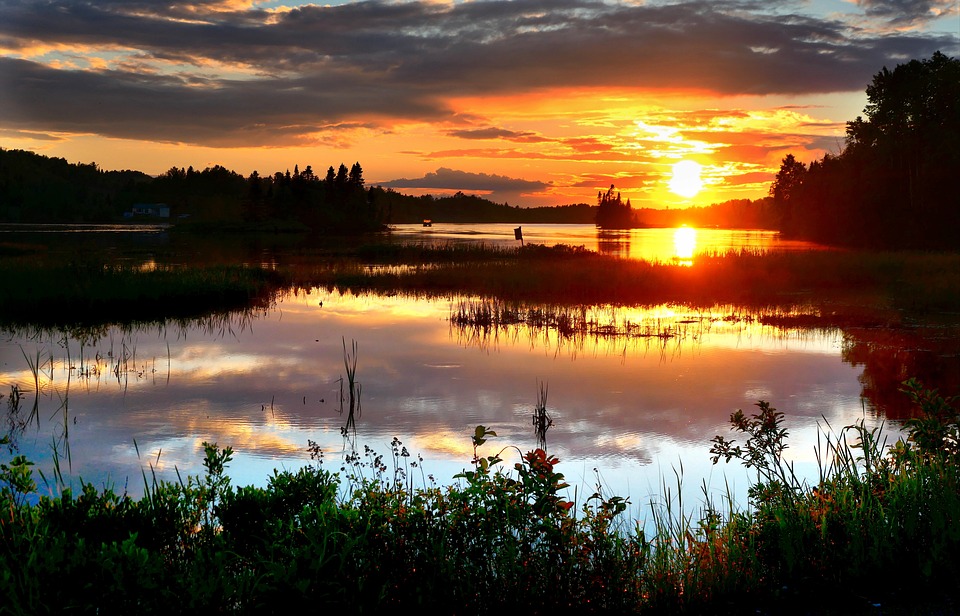What Climate Do Cherry Trees Grow In? A Guide to Cultivating Healthy Cherry Trees
Cherry trees are celebrated for their stunning blossoms and delectable fruit, making them a favorite among gardeners and fruit enthusiasts alike. Selecting the right climate is crucial for ensuring healthy growth and optimal fruit production. This guide explores the ideal climate conditions for cherry trees and how different types thrive in specific environments.
Types of Cherry Trees
Sweet Cherry Trees (Prunus avium)
– Primarily cultivated for fresh consumption.
– Require warm growing seasons and are sensitive to cold.
– Popular varieties include Bing, Rainier, and Stella.
Sour (Tart) Cherry Trees (Prunus cerasus)
– Better suited for culinary uses like baking.
– More resilient to colder climates.
– Notable varieties include Montmorency and Morello.
Ideal Climate Conditions for Cherry Trees
Temperature Requirements
– Sweet Cherry Trees: Thrive in temperate climates with warm summers; ideal temperatures range from 55°F to 75°F (13°C to 24°C).
– Sour Cherry Trees: Can endure colder winters but still need warm summer temperatures for fruit development.
Chill Hours
Cherry trees need a winter chill period to break dormancy and promote flowering.
– Sweet cherries: Require 700 to 1,000 chill hours (hours below 45°F/7°C).
– Sour cherries: Generally need fewer chill hours, around 600 to 800.
Frost Sensitivity
Cherry trees are vulnerable to late frosts, particularly during early spring when blossoms emerge. While cold winters aid dormancy, extreme cold during budding can be detrimental.
Regional Climate Preferences for Cherry Trees
Temperate Climates
Ideal for sweet cherries, regions with distinct seasons and mild summers are optimal.
– Examples: California, Washington, and Oregon.
Cold-Hardy Climates
Sour cherries thrive in areas with colder winters and shorter growing seasons.
– Examples: Michigan, New York, and Wisconsin.
Mediterranean Climates
Regions with warm, dry summers and cool winters support cherry trees well.
– Examples: Southern Europe and parts of California.
Soil and Water Requirements for Cherry Trees
Well-Drained Soil
Cherry trees prefer well-drained, loamy soil with good aeration. They are sensitive to waterlogged conditions which can lead to root rot.
– Ideal pH: 6.0 to 7.0 (slightly acidic to neutral).
Moderate Watering
Consistency is key; cherry trees require moderate watering, especially during dry spells. Overwatering should be avoided to prevent root issues.
Challenges of Growing Cherry Trees in Different Climates
Too Much Heat
Excessive heat can cause stress, leading to poor fruit development or sunscald. Strategies include planting in partial shade or ensuring regular watering.
High Humidity
Increased humidity raises the risk of fungal diseases like blossom blight. Proper spacing between trees enhances air circulation, while selecting disease-resistant varieties can help mitigate these effects.
Inadequate Chill Hours
Regions lacking sufficient chill hours may see delayed flowering or poor fruit production. Low-chill cherry varieties may be necessary in milder climates.
Best Regions in the World for Growing Cherry Trees
United States
– Sweet Cherries: Pacific Northwest (Washington, Oregon) and California.
– Sour Cherries: Michigan and New York.
Europe
– Mediterranean Regions: Turkey, Spain, Italy.
– Colder Regions: Poland and Germany for sour cherries.
Asia
– Japan: Known for cherry blossom trees and sweet cherry production.
– China: A significant producer of cherries for domestic use and export.
Adapting Cherry Trees to Different Climates
Choosing the Right Variety
Selecting varieties suited to local conditions is essential. Low-chill varieties work well in warmer regions, while cold-hardy types thrive in cooler areas.
Protecting from Frost
Using frost blankets or coverings during early spring can safeguard blossoms from frost damage.
Microclimate Considerations
Creating microclimates—such as planting near walls or using windbreaks—can protect cherry trees from harsh conditions.
FAQs
– Can cherry trees grow in hot climates?
Yes, sweet cherries prefer temperate conditions but some low-chill varieties can adapt to warmer climates with proper care.
– How many chill hours do cherry trees need?
Sweet cherries typically require 700 to 1,000 chill hours; sour cherries need about 600 to 800 hours.
– What regions are best for growing cherries?
Temperate regions like the Pacific Northwest and parts of Europe are ideal due to their suitable climate conditions.
– Can cherry trees survive in tropical climates?
Generally no; they struggle due to insufficient chill hours and excessive heat.
– How do I protect cherry trees from frost?
Covering them with frost blankets during unexpected cold snaps can help prevent damage.
Conclusion
In summary, cherry trees thrive best in temperate or cold-hardy climates with distinct seasons and adequate chill hours. By selecting the right variety and providing proper care—such as frost protection and ensuring good drainage—gardeners can enjoy a successful cherry harvest. Careful assessment of local climate conditions is crucial when choosing to grow cherry trees.

Kyle Whyte is a notable scholar and professor at the University of Michigan, holding positions such as the George Willis Pack Professor in the School for Environment and Sustainability and Professor of Philosophy. Specializing in environmental justice, his work critically examines climate policy and Indigenous peoples’ ethics, emphasizing the nexus between cooperative scientific endeavors and Indigenous justice. As an enrolled Citizen Potawatomi Nation member, he brings a vital perspective to his roles as a U.S. Science Envoy and member of the White House Environmental Justice Advisory Council. His influential research is supported by various prestigious organizations including the National Science Foundation, and disseminated through publications in high-impact journals. Kyle actively contributes to global Indigenous research methodologies and education, with affiliations to numerous institutes and societies dedicated to traditional knowledge and sustainability. Recognized for his academic and community engagement, Kyle has earned multiple awards and served in various visiting professorships. His efforts extend to leadership positions on boards and committees focused on environmental justice nationwide.
